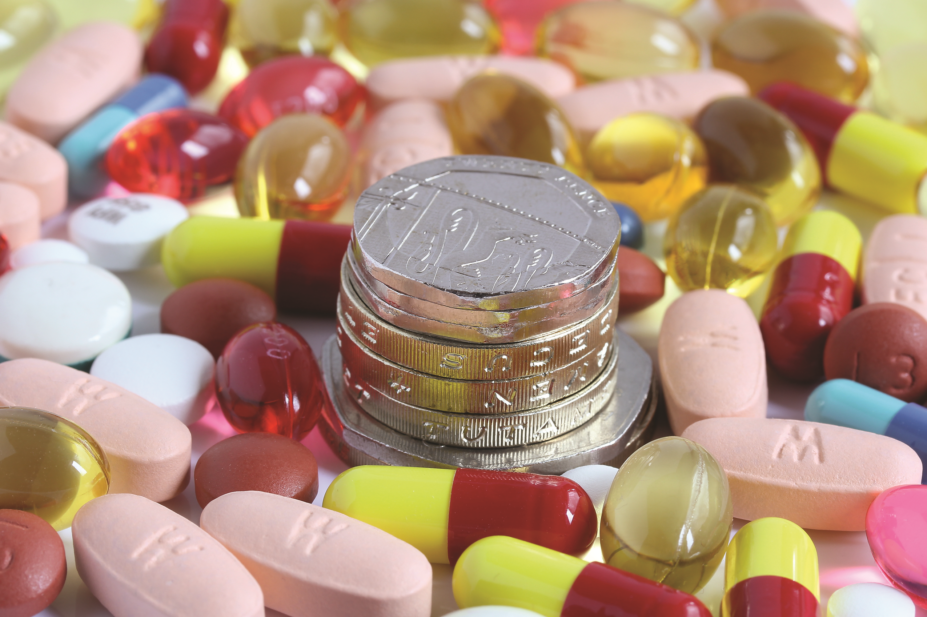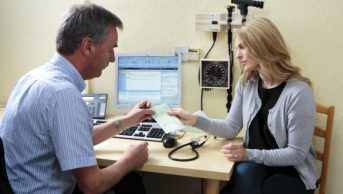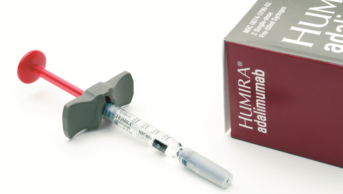
Shutterstock.com
NHS England saved £324m in 2017/2018 by switching from using ten “expensive” medicines to “better value and equally effective” alternatives, mainly generic and biosimilar medicines, NHS Improvement has revealed.
NHS Improvement, which oversees secondary healthcare providers, said an original savings target for NHS trusts was set at £250m, meaning that the actual savings made exceeded the target by £74m.
Most of the savings were delivered by trusts switching to biosimilars, such as infliximab biosimilars for the treatment of rheumatoid diseases and inflammatory bowel diseases; etanercept biosimilars for the treatment of rheumatoid diseases; and rituximab biosimilars for the treatment of certain cancers and rheumatoid conditions. These switches resulted in savings totalling over £210m.
The rest of the ten “better value” medicines included the generic anticancer drug imatinib; generic linezolid, an anti-infective; anti-fungals valganciclovir, caspofungin and voriconazole; and asthma drug prednisolone soluble.
An anti-emetic was also expected to deliver significant savings but was unsuccessful following clinical practice changes.
Further savings are expected to be made when adalimumab, a drug used to treat rheumatoid arthritis, inflammatory bowel disease and psoriasis — and the drug on which the NHS currently spends the most money — comes off patent in October 2018.
“By delivering £324m in savings in a single year from switching to better value but equally effective and safe medicines, the NHS has been able to help more patients manage their conditions,” said Jeremy Marlow, executive director of operational productivity at NHS Improvement.
“There is more still to do, with £200m of additional savings to be achieved this year. We will also continue to find further opportunities to use medicines more effectively and make every penny of the NHS’s budget count.”

Source: Courtesy of British Generic Manufacturers Association
Warwick Smith says these savings prove how successful switching to biosimilars can be, both in terms of cost but also in terms of giving patients access to medicines
Warwick Smith, director general of the British Generic Manufacturers Association and British Biosimilars Association, welcomed the study and said it demonstrated the significant value and increased patient access generic and biosimilar medicines deliver.
“Generic medicines have for a long time saved the NHS billions of pounds on an annual basis. We now see the huge value that biosimilars can also deliver to the NHS in terms of savings and increased access to patients with chronic and often long-term diseases,” he said.

Source: Nadia Attura / Royal Pharmaceutical Society
Keith Ridge says biosimilar medicines will be promoted more widely as a ten-year plan for the NHS unfolds
Keith Ridge, chief pharmaceutical officer for England, described biosimilar medicines as “safe and effective”.
“As we develop a ten-year plan for the NHS, we will be working to promote their use more widely, enabling the NHS to reinvest hundreds of millions of pounds into innovative new treatments and patient care,” he said.
To help NHS trusts understand their spending and potential savings, NHS Improvement has developed a monthly tracker, as part of its Model Hospital system, to show how much they could save by switching the ten better value medicines.


